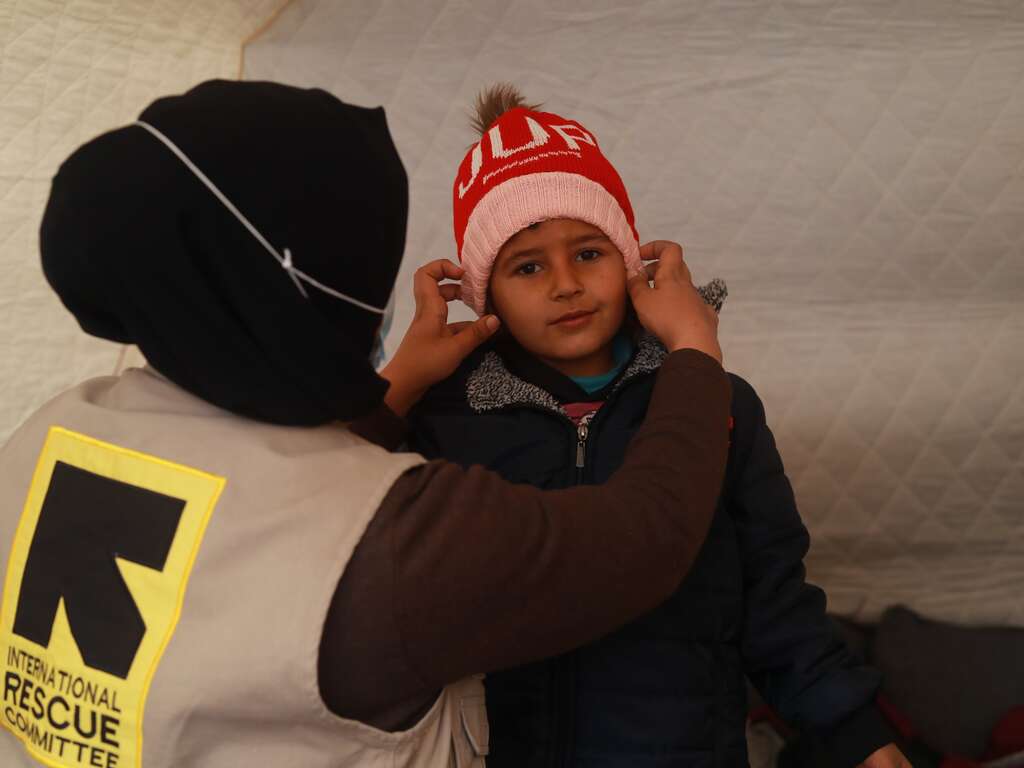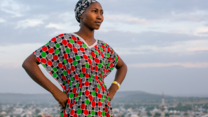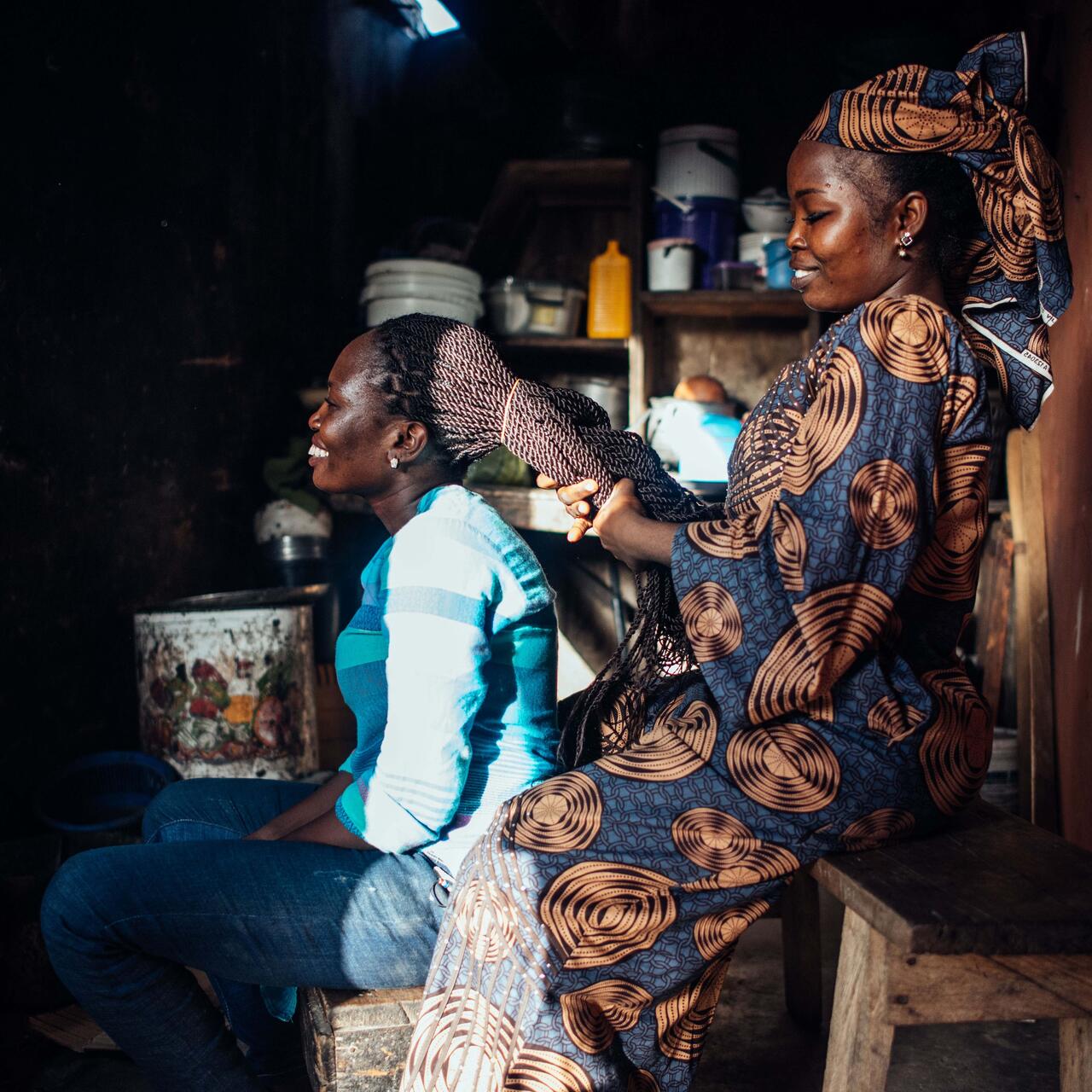
“People like to come to my salon: the way I welcome them, the way we chat together and the way I entertain them.” Abigail is a business owner who runs a hairdressing and beauty salon in Maiduguri, northeast Nigeria. But for her, the journey has not been easy.
Before conflict erupted in northeast Nigeria, life was good for Abigail and her family. Abigail’s father earned enough money to pay school fees for her and her siblings.
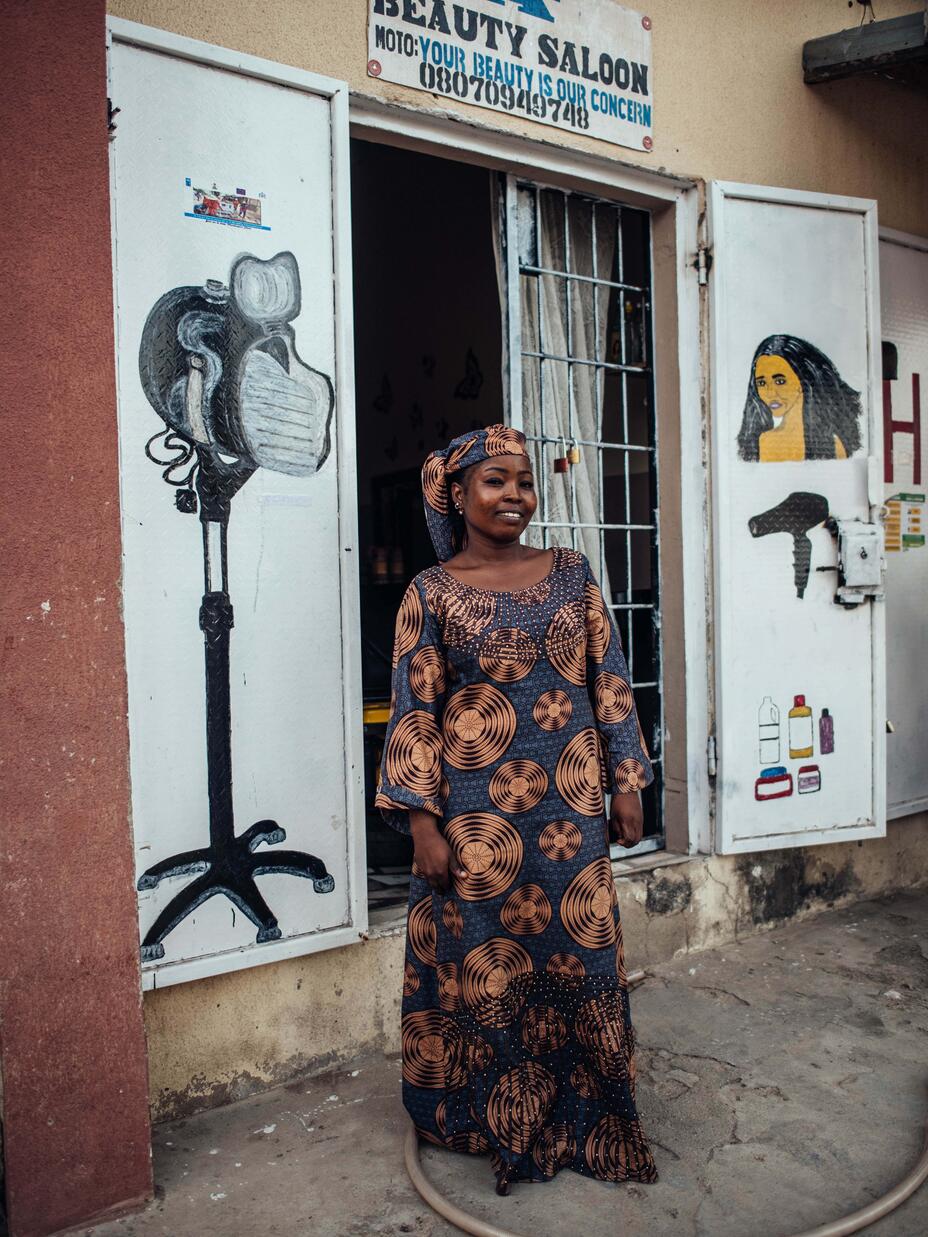
But when violence broke out in Maiduguri in 2009, it changed Abigail’s life forever: her father was killed in the conflict. “Sometimes, in the middle of the night, when we would be sleeping, we’d hear gunshots and people would be running,” Abigail remembers. “We would not even know where to run. You don't know where you'll go and end up.”
Abigail and her family were forced to move to Adamawa, returning to Maiduguri later the same year to rebuild their lives. “We found it difficult at that time,” she says. “I had to hustle to get money before going back to school so that seriously affected us.”
To survive, Abigail started to cook and sell food in order to pay for school and support her family. “I want to help my siblings to see that everyone is successful,” she says.
Abigail would spend a lot of her extra time helping out in her Aunt Vivian’s hair salon. She found that she loved everything her aunt taught her, including plaiting hair, doing manicures and pedicures and fixing eyelashes. She began to dream of opening her own salon, just like her aunt.
”When I went to her shop, I saw so many kinds of things that attracted me. I said, ‘I'll have my own salon.”
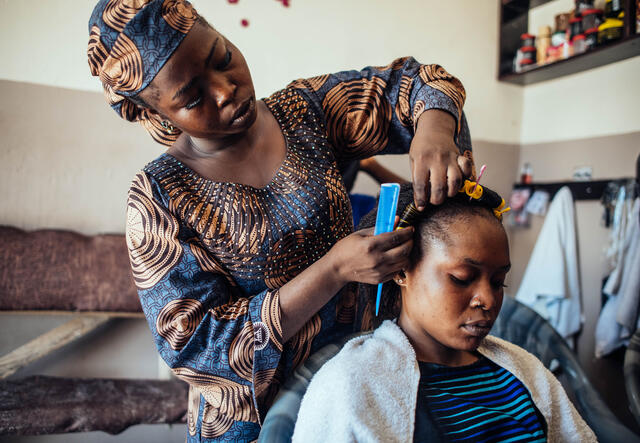
The challenges of starting a business in northeast Nigeria
Abigail explains how the increase in the cost of living caused by the conflict in northeast Nigeria has impacted her and her family. “Things have changed. It is not like before [the conflict]. Now even to feed yourself is an issue. Before you could get by on a little money. But now even to afford something small to eat, is a problem.”
Being a woman made it especially difficult for Abigail to find opportunities to make money and save up for her dream business.
“Our society does not provide a lot of job opportunities for women. Most women are not used to doing business to make some money. They end up staying at home to take care of their children and the house chores.”
Resilient Futures
As Abigail's longing to open her own salon grew, she heard from a neighbour about the International Rescue Committee (IRC)’s Resilient Futures programme, supported by Citi through the Citi Foundation. Keen to finally achieve her dream and with the support of Aunt Vivian and her family, Abigail applied to join the programme and was selected to receive training on how to open and manage a small business. After excelling in the course, Abigail was among those selected to receive a grant to support her business.
“I learned so many things from the IRC. The IRC trained me how to run my business, how to attract customers and how to give customers the best support,” she says.
Abigail opens her salon
“The first day I opened my salon I was very happy,” says Abigail. “I knew that day that I had something of my own.“
Now, Abigail wakes up in the morning, cooks food for her family, heads to the shop, and welcomes her growing clientele. Inspired by her Aunt Vivian, she is keen to make her customers’ hair perfect and to also be a good friend.
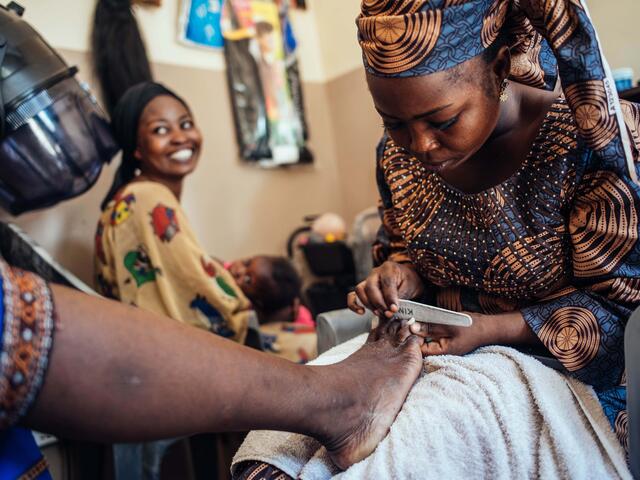
“Now things are easy for me–not like before.” The salon has provided employment for her elder sister too, who has come in to help Abigail as her clientele grows.
Expanding the business
Abigail still has more dreams for herself and her family. “My salon is very small now. And if I have more customers I feel happy. But I would like to expand it,” she says.
In collaboration with Aunt Vivian and her sister, Abigail came up with a plan for her expansion. “Aunty Vivian is very important to my business because I learned everything from her. She's the one that taught me everything and any time I have a challenge, I go to her and ask advice because she has been running her shop for a long time,” she says.
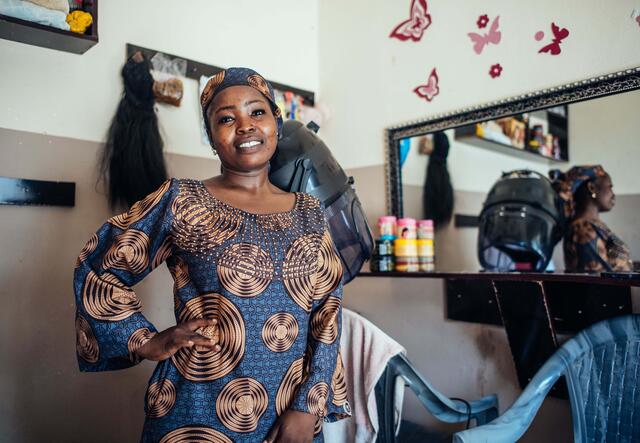
“My plan for attracting new customers is to advertise my salon. I want to make a banner that will attract loyal customers.
“Now I have competitors close to me, so I will make my prices discounted. People can use the money they save from the discount to maybe buy something to use at home.”
Abigail continues to take her job very seriously in order to retain existing customers and attract new ones. “When I finish making a customer's hair, when they look at it in the mirror, they feel very excited. And I also feel very happy and satisfied.”
“Having my own business makes me very happy. And it makes me save more money to help my family and to look after my future."
Our Resilient Futures programme, in partnership with Citi through the Citi Foundation, offers young entrepreneurs living in Greece, Nigeria, Jordan, Lebanon, Germany, Cameroon and Mexico the chance to kick-start their businesses and reach their full potential.
